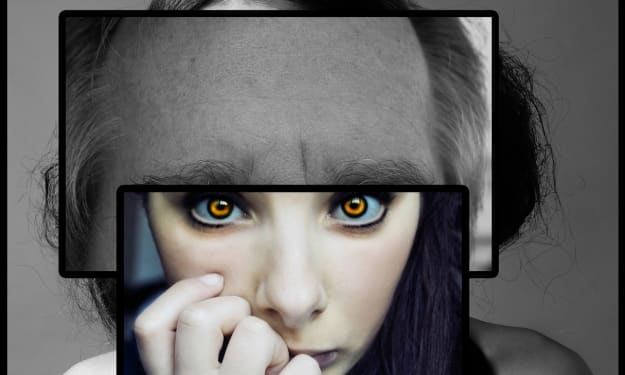
Introduction:
Books have always been a source of inspiration for filmmakers, leading to the creation of numerous book-to-screen adaptations. Some adaptations are celebrated for their faithfulness to the source material, while others fall short of capturing the essence of the original book. In this blog post, we will explore the best and worst book-to-screen adaptations of the 21st century, discuss how well classics hold up on the big screen, uncover some underrated book adaptations worth watching, and examine the impact of author involvement in adaptations.
The Best Book-to-Screen Adaptations of the 21st Century
The dawn of the 21st century heralded a golden era for book-to-screen adaptations, with several notable examples standing out for their exceptional fidelity to the source material and the vivid world-building they showcased. Among these, the "Harry Potter" series stands as a monumental achievement, enchanting a generation of viewers and readers alike with its faithful representation of J.K. Rowling's magical universe. Similarly, "The Lord of the Rings" trilogy by Peter Jackson not only adhered closely to J.R.R. Tolkien's epic saga but also elevated the source material through groundbreaking visual effects and emotionally resonant performances. "The Hunger Games" films captured the dystopian fervor of Suzanne Collins' novels, resonating with audiences through its gripping narrative and compelling character development. These adaptations not only achieved critical and commercial success but also set a high standard for translating beloved books to the cinematic medium, demonstrating the potential for harmonious collaboration between the page and screen.
When Adaptations Go Wrong: The Worst Book-to-Screen Failures
In the realm of cinematic reinterpretations, not all endeavors yield success. Certain adaptations have become infamous for their inability to truly encapsulate the spirit or the narrative intricacies of their literary counterparts, thereby alienating their established fan bases. "Eragon," for instance, stands as a particularly disheartening example, where the richly detailed world and complex character arcs established in Christopher Paolini's novel were significantly condensed, much to the chagrin of fans and critics alike. Similarly, "The Dark Tower," despite the anticipation surrounding its release, managed to disappoint by attempting to compress Stephen King's expansive, multifaceted series into a singular, disjointed cinematic experience. These adaptations highlight the delicate balance required in transforming written words into visual spectacles and serve as a reminder of the challenges inherent in maintaining the integrity of the original text while navigating the expectations of both new and devoted audiences.
From Classics to Cinemas: How Well Do They Hold Up?
The journey of classic novels from the tranquility of bookshelves to the bustling energy of cinemas is a path tread frequently, with outcomes ranging from critically acclaimed masterpieces to controversial misses. The challenge of adapting timeless works like "Pride and Prejudice," "To Kill a Mockingbird," and "The Great Gatsby" lies not only in translating their complex narratives and richly drawn characters into visual storytelling but also in maintaining the narrative integrity and thematic depth that have cemented these works as cornerstones of literature. Some adaptations, such as the 1995 "Pride and Prejudice" miniseries, have been lauded for their faithful depiction of Jane Austen's intricate social tapestry and nuanced character studies, effectively capturing the novel's spirit. Conversely, other adaptations like certain versions of "The Great Gatsby" have faced criticism for prioritizing style over substance, losing the novel's critical commentary on the American Dream amidst lavish party scenes. The adaptation process thus emerges as a delicate balancing act, one that requires a deep understanding of the original work's core while navigating the expectations of contemporary audiences and the constraints of a different medium. These cinematic endeavors underscore the enduring relevance of classic novels, even as they invite debates on the nature and success of adaptation itself.
Hidden Gems: Underrated Book Adaptations Worth Watching
Amid the vast ocean of cinematic renditions, several adaptations manage to fly under the radar, quietly delivering exceptional narratives and performances that remain faithful to their literary origins. Films such as "Stardust," blending fantasy with romance in a manner that captures the whimsical essence of Neil Gaiman's novel, are prime examples. Similarly, "The Perks of Being a Wallflower," adapted from Stephen Chbosky’s own novel, brings to life the tumultuous journey of adolescence with a raw, emotional depth that resonates with viewers. "The Secret Life of Bees" is another such adaptation, beautifully translating the themes of family, race, and redemption from the pages of Sue Monk Kidd's novel to the screen with grace and sensitivity. These films, though not as widely publicized as their blockbuster counterparts, offer enriching experiences that merit attention. Their capacity to weave literary elements with cinematic craft showcases the potential for adaptations to illuminate the essence of the original work, creating a bridge between readers and viewers in the process.
The Impact of Author Involvement in Adaptations
The influence of an author's involvement in the adaptation process can be profound, often serving as a critical factor in the success or failure of a cinematic project. When authors are actively engaged, they provide invaluable insights into the characters, settings, and subtleties of the narrative that might otherwise be overlooked or misrepresented by filmmakers. J.K. Rowling's role in the "Harry Potter" film series is a prime example, where her guidance ensured that the magical world she created was authentically brought to life, preserving the essence that fans cherished. Conversely, adaptations that lack this direct input may miss crucial elements that define the book's appeal, leading to adaptations that feel disconnected from their source material. Authorial input can also act as a bridge between the dedicated fanbase and the filmmakers, ensuring that the adaptation respects the original vision while navigating the demands of cinematic storytelling. Thus, the level of author involvement can significantly shape an adaptation’s fidelity to the original work and its overall reception, underscoring the importance of collaboration in the adaptation process.
About the Creator
ED CLEFF
I have over a decade of experience in crafting compelling and diverse content. My portfolio spans multiple industries, including technology, healthcare, finance, and lifestyle, given me an added advantage in all my areas of specialization.






Comments (2)
Sure things... Will do
Keep giving and present what's new now